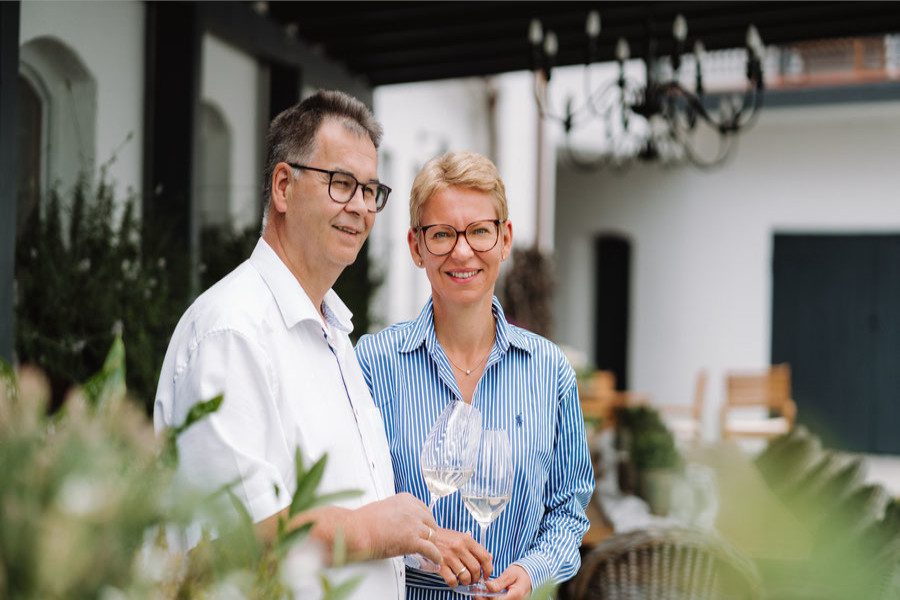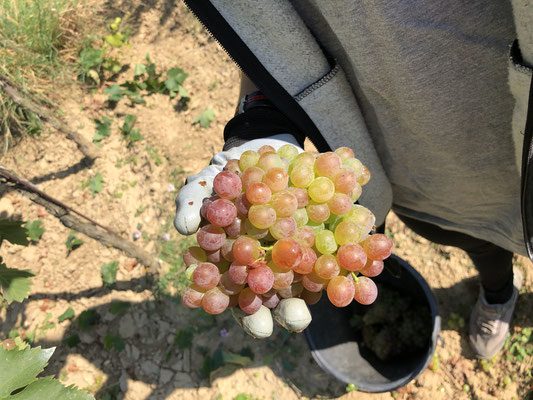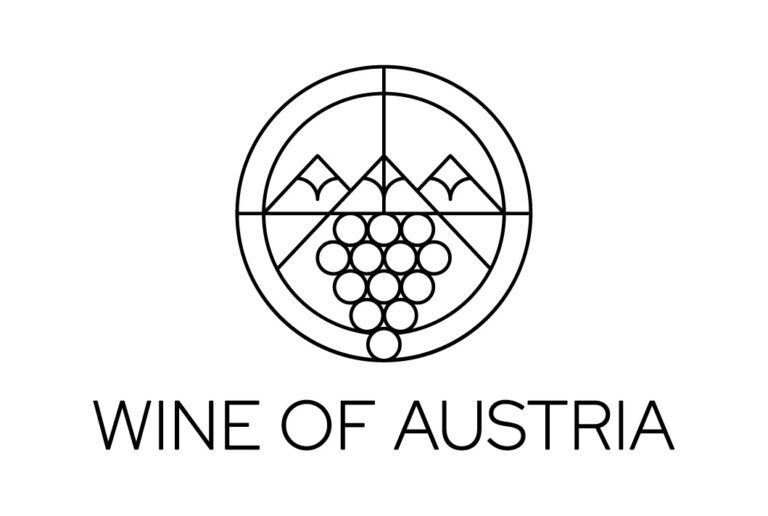Discover Sutter’s distinct wines in Weinviertel, Austria. Learn about unique grapes, sustainable methods, and the passion behind this renowned wine region.
Wine of Austria:
First, to the question, what is special about the wine region?
Sutter:
We are situated in the Weinviertel, the largest wine-growing region in Austria, with a cultivation area of 14,000 hectares. We are in Hohenwarth, and the name means “high” as we are 80 meters above sea level, which was advantageous this year during the late frost.


Wine of Austria:
What can you tell us about the soil and climate?
Sutter:
Our soils are special because we have the slate of the Ur-Donau. Slate, a rock rich in minerals, forms the base layer. Loess, a fine windblown deposit, high in clay, adds creamy-textured layers. This combination creates different types of topsoil at varying depths.
Loam is especially good for water retention and can conserve the little rainfall we get, especially in dry years. In Hohenwarth, we only get about 300 millimeters of precipitation annually.
Our climate is characterized by cold nights and hot days, which gives a nice acidity and the wines become more flavorful as the grapes have more time to ripen, thanks to the recurring cold nights.
We have all our vineyards within a radius of about 2 to 3 kilometers from the winery. Due to the proximity to Manhartsberg, we also have constant winds that benefit the grapes, and the forested mountain protects us from storms.
Wine of Austria:
What is special about your wines?
Sutter:
We have 5 hectares of Red Veltliner, which is an indigenous grape. Overall, there are only 200 hectares planted in Austria.
Hohenwarth is the stronghold of the Red Veltliner. We produce it in four different styles: Classic, single vineyard, old vines which are a reserve in large oak and then we also have our Red Veltliner Private. That is top, top, top, our flagship product.
Of course, our product range includes the classic Grüner Veltliner, which is essential for the Weinviertel. We have six different styles, from the basic entry-level to our Private Selection Weinviertel DAC Reserve.
We round off our assortment with varieties such as Riesling and Zweigelt, which are also very important to us.
Wine of Austria:
What is your philosophy?
Sutter:
The quality of all wines originates in the vineyard, and we must take care of them there. We focus on fertilization, ensuring it is done without artificial fertilizers.
Good soil aeration and soil- management are essential. We use cover crops, chosen based on regular soil analyses, to determine the necessary minerals and nutrients.
Wine of Austria:
Can you explain your passion for your profession?
Sutter:
Another unique aspect of our profession is that no year is like the other. We work closely with nature, and our work varies a lot. Beginning in spring when the vineyard awakens, everything buds, blossoms and blooms. It continues until the end of the year when the grapes finally reach the cellar. That is one of the best days of the year.
Then it moves on to winemaking. Winemaking is also exciting, with the wines reaching different stages every day; we have to taste them regularly. It is a wonderful experience as they start to evolve. These are beautiful moments, and we are very grateful for them.
When the wine is finally bottled, labeled and ready to be presented, we are incredibly proud, knowing all the hard work and passion that went into it. It requires a lot of precision and awareness when dealing with weather, potential storms, frost, infections, etc. In our profession, there is always something new to discover, even after 40 or 50 years.
Wine of Austria:
Tell us more about your production.
Sutter:
For our Riesling, we conduct whole cluster pressing. That means the grapes are not destemmed beforehand, but the whole bunch, including the stems, goes into the press. This way, we have a certain amount of tannins, which is very good because tannins are flavor carriers. If used correctly and carefully, the result is a very fine-structured Riesling, that can hold up for many years.
We are also certified sustainable.
Most of our wines are vegan. We are a small-structured operation, meaning everything is done by hand with full dedication. Our involvement is very important because it allows us to be truly involved in the product and put a lot of ourselves into it.
Wine of Austria:
What are your favorite wines?
Sutter:
As our whole structure is smaller, our vineyards are smaller, which means our favorite varieties can be easily identified. For me, it’s the Red Veltliner, especially the old vines. For my husband, it’s the single vineyard. He is a big fan of the Red Veltliner, while I lean towards the Grüner Veltliner, so it depends on the day and what we eat. The Red Veltliner pairs well with fish or light salads, and the Grüner Veltliner is great too, especially as an entry-level wine. For steak, it can be the old vines Red Veltliner or a Weinviertel DAC Reserve, which pairs beautifully.
Wine of Austria:
Some final words?
Sutter:
Sustainability is very important to us as producers and making wines that bring joy. I want to convey pleasure and happiness so that when someone opens a bottle of wine, they can enjoy and feel the joy it brings. That makes us proud, brings us joy, motivates us, and is truly unique.
We have smaller, family-run operations in Austria, not mass production or industrial scale. There is a lot of passion involved, passed down through generations. We have a wonderful heritage from our ancestors that we want to pass on to our children. We conserve our resources and our land because we need healthy soils and vines to pass on to the next generation so they can continue.

